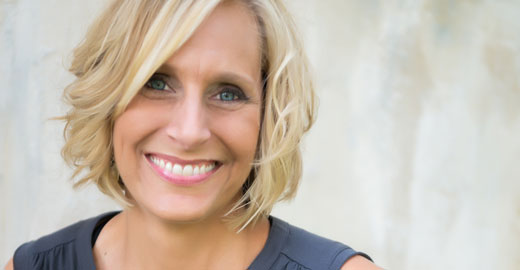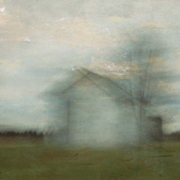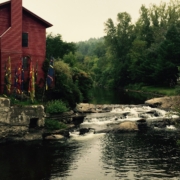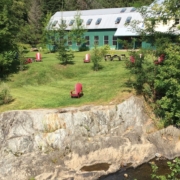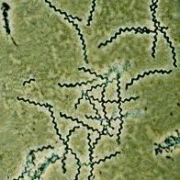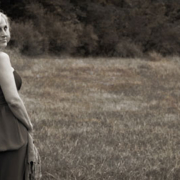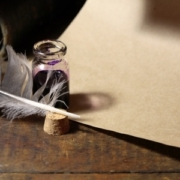Sheryl Louise Rivett
Sheryl Louise Rivett holds an MA in creative nonfiction writing from Johns Hopkins University and an MFA in fiction from George Mason University.
Bio
I reach for the edges of myself, searching blindly for the places where I begin. I bend toward my ancestors, examining their faces lined in sorrow and joy and all of the small moments that life leaves upon a face. I spin in a dark cosmic space filled with tiny pinpricks of light, like fireflies on a lazy summer night, blinking beside me. Where do I begin? Do I begin on the cold night in January when my maternal great-grandmother gave birth to my grandmother, Louise? With the passage of her maternal cells on that cold Missouri night? Or do I begin when another generation of those cells passed between my grandmother and mother and then another generation of cells on to me? In this cosmic spinning space, I see every person I’ve encountered who has left gentle thumbprints on my soul. My hands stretch through the darkness where I feel the cold winters of my childhood. I smell the salty Atlantic air of the beach vacations I’ve taken with my children and taste the sweet syrup of my great-aunt-Annie’s blueberry pie. I spin in gentle circles as I gather the truths that make up the whole of who I am.
If I choose to begin at the time when I had language to make sense of my life, I would say that my life began in the Midwest, in the northern industrial mid-size city, Rockford. Most of my early memories include the Rock River, gentling lapping against its grassy banks, flowing toward the Mississippi with a lazy and meandering pace, or white and frozen beneath the winter sky. The river is what I first learned to fear. Living only a block from its banks, our parents warned us in strong whispers of accidental drownings and cracked, broken ice. To never, ever trust that it could be fully frozen, to beware on warmer days of its hidden undercurrents.
I spent my childhood ice skating, canoeing, and camping. Summers were long lazy days of tennis and reading and pretend-play in the woods behind my parents’ home. As a very young child, when I was first given language, I lost myself in the worlds of my father’s dramatic bedtime stories. By day I spun imaginary play in my room, story after story played out on a bed covered in a yellow quilt dotted with purple blossoms, or in my closet with high ceilings and a bright sunny window; stuffed animals and dolls lined up beside me, important characters in my play. When I gained the ability to write with pencil on paper, I began to write down my first stories. A poet, my mother nurtured my writing spirit that waited to be tamed in elementary school. I wrote and illustrated story after story until the librarian of our small neighborhood school gently suggested that I take a break, my stories cased in cardboard and contact paper stacked high on the library shelves behind her.
And then reason took root. I was suddenly an adolescent frankly assessing the real world. How would I support myself? I put down my paintbrush, packed away my charcoal drawings and shoeboxes of short stories and novels, and left home to pursue a degree in Communication on the East Coast. A practical degree. An employable future.
I’ve worked in human resources, in training and quality improvement; in IT as a technical writer and editor; in healthcare, as a lay educator, support group facilitator, and volunteer supervisor; in grassroots organizing in women’s health; and in education, as a creative writing and English teacher, and collaborator for a college level textbook.
The most important work, though, has been the raising of my four daughters. Four more beginnings. More passing of maternal memory, of maternal cells, a silent language: microchimerism. The continuation of the legacy of the women who have come before me. Every day I feel that legacy acutely and only hope that my small part in the chain of cells will mean something.
And so now, my life has taken me back to the paintbrush, the charcoal, and the writing pen. Life has worked out. I’m employable. I’ve faced down the practical. And I’ve welcomed back the passions that give me the most joy: writing and visual art. As I watch my daughters grow into young girls, young women, I feel even more acutely the importance of joy and living with passion. If for nothing else, I hope to give them a sense of what a woman can do when following the bliss that can only occur when you do what you love.
Publications and Interviews
Publications:
- Mothers & Midwives: Women’s Stories of Childbirth (2005)
- March 2010 | Hope is in the Possibilities |This I Believe
- Summer 2010 | An Afternoon with Marsden | Midwifery Today, Issue 94
- October 2012 | Dreamy Reality | Outside In Literary & Travel Magazine, Issue 7
- May 2012 | Nothing Fancy | Penn Union (print only)
- April 2013| I am Woman | So to Speak
- April 2013| What? You Birth at Home AND You’re a Feminist? | So to Speak
- September 2013 | Author Elizabeth Huergo on Feminism, Writing, and the Experience of Exile | So to Speak
- November 2013 | Award-winning Joy Harjo on the Binds of Culture and More | So to Speak
- November 2013 | Feminist Poetry, Exhibits, Performance Art, Academia, Publishing, and Laundry (Interview with Heid E. Erdrich)| So to Speak
- Spring/Summer 2014 | Meeting Sylvia Plath | Quail Bell Magazine
- February 2014 | Certain and Complete | (T)here: Writings on Returnings
- February 2014| Representations of the Feminine Body and Psyche: An Interview with Lili Almog | So to Speak
- May 2014 | Midwife Jennie Joseph on Race, Power, and Changing Birth in America| So to Speak
- November 2014 | Lyme Disease: Not for the Faint of Heart | YouShare
- July 2016 | Traction | YouShare
- August 2016 | Nothing Fancy |The Manifest Station
Interviews:
- Self-Reliance: A Blog about Writing | An Interview with Sheryl Louise Rivett
- Interviews with Extraordinary Normal Folks, BrandiDawnHenderson.com | Sheryl Louise Rivett

